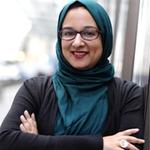From Trauma Support to Rebuilding Lives & Homes, Turkey/Syria Earthquake Relief Efforts Continue
Community
|
Apr 6, 2023
|
5 MIN READ
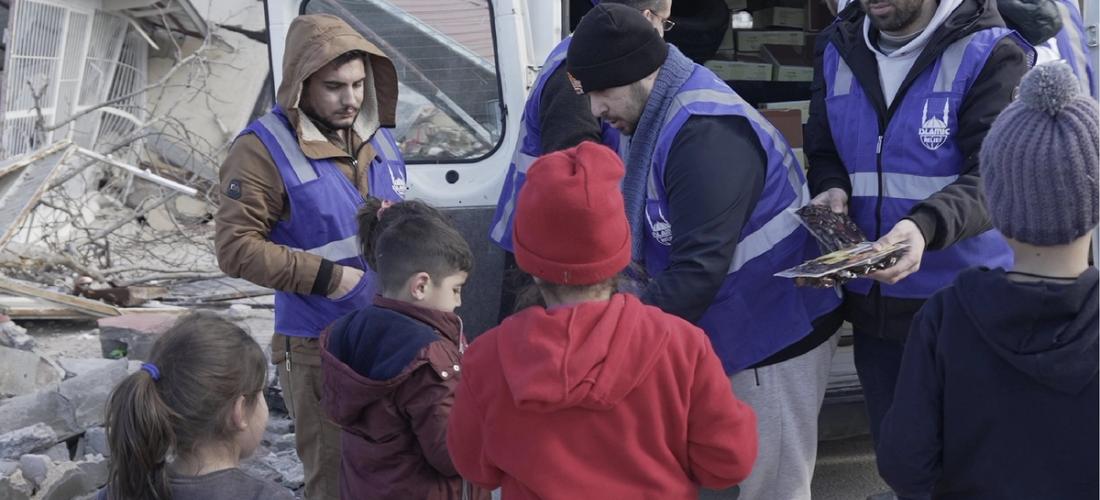
Image source: IRUSA on Twitter
Editor’s Note: This Ramadan, Haute Hijab is continuing its partnership with Islamic Relief USA to help support earthquake relief efforts in Turkey and Syria. This article is the second in a three-part series focused on this longer-term relief work, the stories of survivors and what it takes for an organization like IRUSA to plan out and execute long-ranging relief projects. Read the first part here. Please reap the rewards of supporting work like this in Ramadan and click here to donate.
The sounds and noise of the earthquakes was absolutely indescribable and terrifying, the trauma of which lives on in Turkish and Syrian earthquake survivors. This is what Islamic Relief aid workers have reported time and time again from their work in the field.
IRUSA’s CEO Sharif Aly remembers “[one of the organization’s directors based in Turkey] telling us that when the earthquake happened, the thing that people remembered the most was the sound. The sound was so loud – they said it sounded like rocks screaming. They believed it was Yawma Qiaymat, the Day of Judgment.
Long after the earth stopped shaking and rubble was cleared from the thousands of fallen buildings, the trauma lingers on.
Nearly two months after two massive earthquakes devastated Turkey and Syria, the hard work of rebuilding lives and infrastructure is being planned out and starting. The road for thousands upon thousands of Turkish and Syrian people is fraught with uncertainty and instability, and organizations like IRUSA are settling in for the long haul in earthquake relief projects, one of which is to address the trauma survivors continue to endure.
Lingering Trauma from the Earthquakes
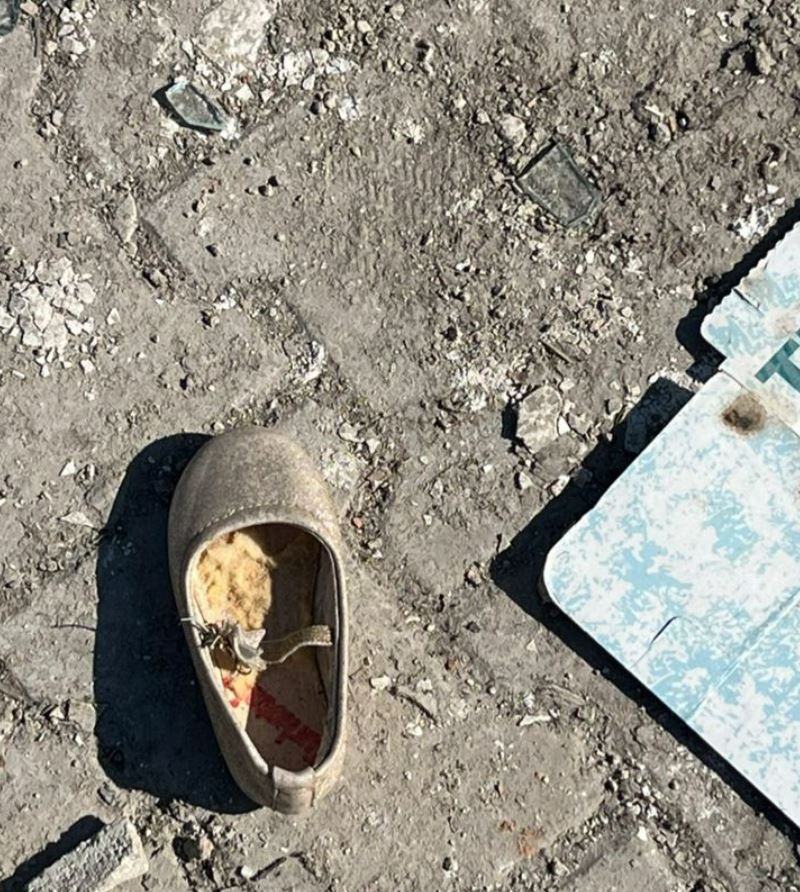
Image source: Melanie Elturk in Turkey
Mental Health Psychosocial Support (MHPSS) is a huge long-term need in earthquake-stricken areas in Turkey and Syria, one that likely will be addressed by the Turkish government with support (as needed) from NGOs in the region. I spoke with an IRUSA program manager to learn more about why addressing mental health needs is so important, how projects are assessed and why the need for continued donations and support continues to be immensely important and needed as relief efforts move forward.
MHPSS is so important for survivors to begin to put their lives back together, says the IRUSA program manager. “You have psychological trauma. You have trauma from being trapped under a building, from losing family members, from the ground literally becoming unstable under your feet.”
While IRUSA is currently focused on providing physical needs for survivors, mental health support is needed in the long term, and IRUSA is exploring how to support these efforts as they are determined and undertaken by the Turkish government, she says. “There are different therapies that have been effective at reducing symptoms of PTSD and challenges of that sort of trauma,” the program manager explains, and numerous things are needed to implement a variety of therapies to address these traumas. “We’re still so close to when the earthquakes happened – it’s all still coming together.” For example, trained therapists who speak Turkish and Arabic will be needed, she explains.
In addition, different approaches to therapy will be needed, as trauma manifests differently between children and adults, resulting in the need for things like recreational activities for kids and art therapy. The other important aspect of MHPSS is finding professionals on the ground – local people.
A critical part of mental health support is figuring out how to help parents deal with their kids’ fears while also regulating their own. “Parents need to be able to regulate themselves so they can help regulate their children,” says the program manager.
Addressing the Long-Term Physical Needs
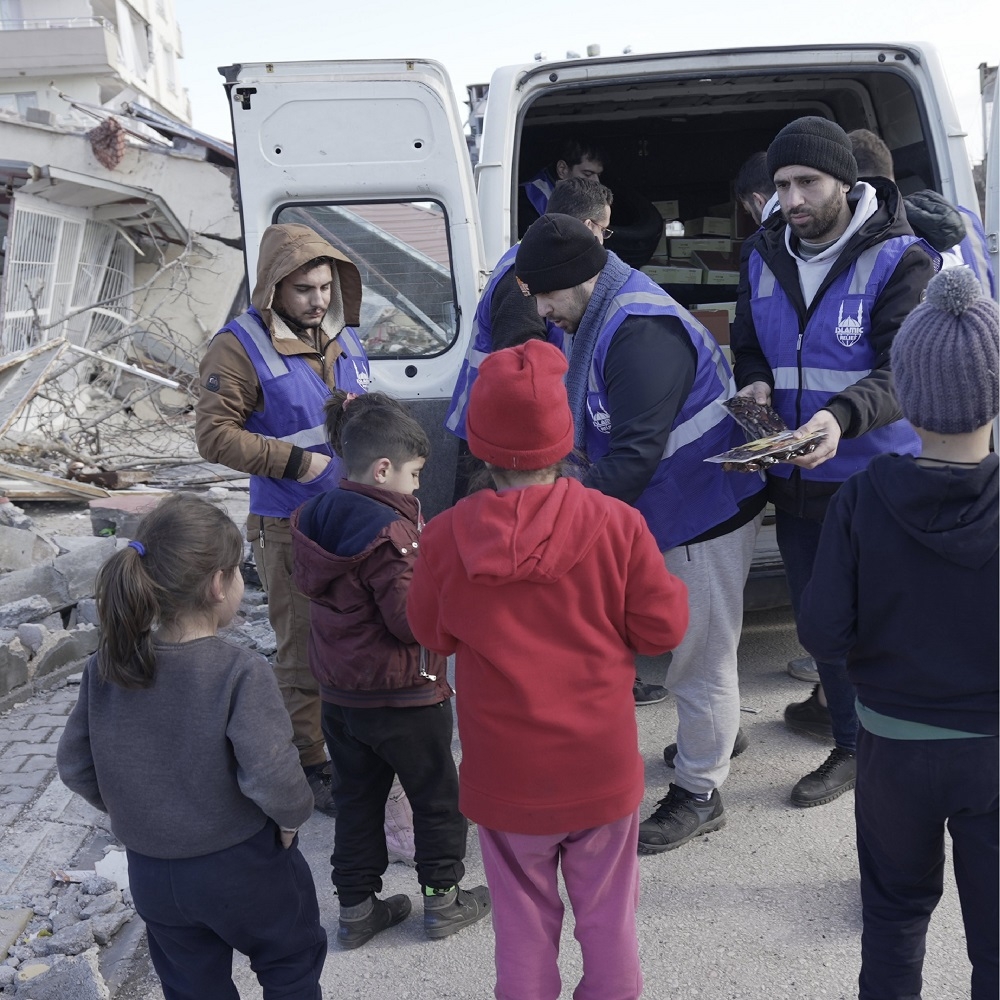
Image source: IRUSA on Twitter
More than 2.5 million people are displaced in Turkey and Syria.
Two major long-term projects IRUSA is working on are housing and livelihood programs, says Br. Sharif. “People need a dignified home to have stability.” Because the government in Turkey is different than in Syria and because Syria has been long-ravaged by civil war, the challenges for these projects will be different. “In Syria NGO structures will be doing a big part of rebuilding homes. In Turkey, some elements will be NGO-led and others will be Turkish-government led.”
There will also be a concerted effort to rebuild the local economy and infrastructures to help boost the livelihoods of people, “because what are these people going to do? What about schools? Where will teachers work? There has to be a concerted effort to rebuild the local economy, and NGOs play a part in that,” says Br. Sharif.
The organization will initially be focusing on cash assistance for affected families through July and then on livelihood activities in areas like agriculture and livestock as well as support to smal and medium enterprises (SMEs).
IRUSA has been active in Gaziantep and Kahramanmaras as well as Kilis, Asekale, Osmaniye and Sanilurfa. Thus far, Islamic Relief, as a whole, has distributed food packages to more than 37,000 households and more than 174,000 people. These food packages consist of rice, bulgur, sugar, olive oil and tomato paste as well as ready-to-eat food items like water, cakes, juice and dates. These were largely provided in the immediate aftermath along with blankets, food vouchers and hygiene kits, says the IRUSA program manager.
“Our teams have been working tirelessly,” she says. “I don’t think they’ve stopped. We’ve had reports of staff sleeping in cars in the initial response.”
As things have started to calm down from the frenzy of the initial response, IRUSA staff on the ground are looking into housing and water solutions as well as livelihood intervention. They (along with other NGOs) are working with AFAD, the Disaster and Emergency Management Authority, in Turkey, to conduct assessments for what the needs are as they move past initial disaster relief work into longer-term projects.
All this takes continued ongoing support and donations.
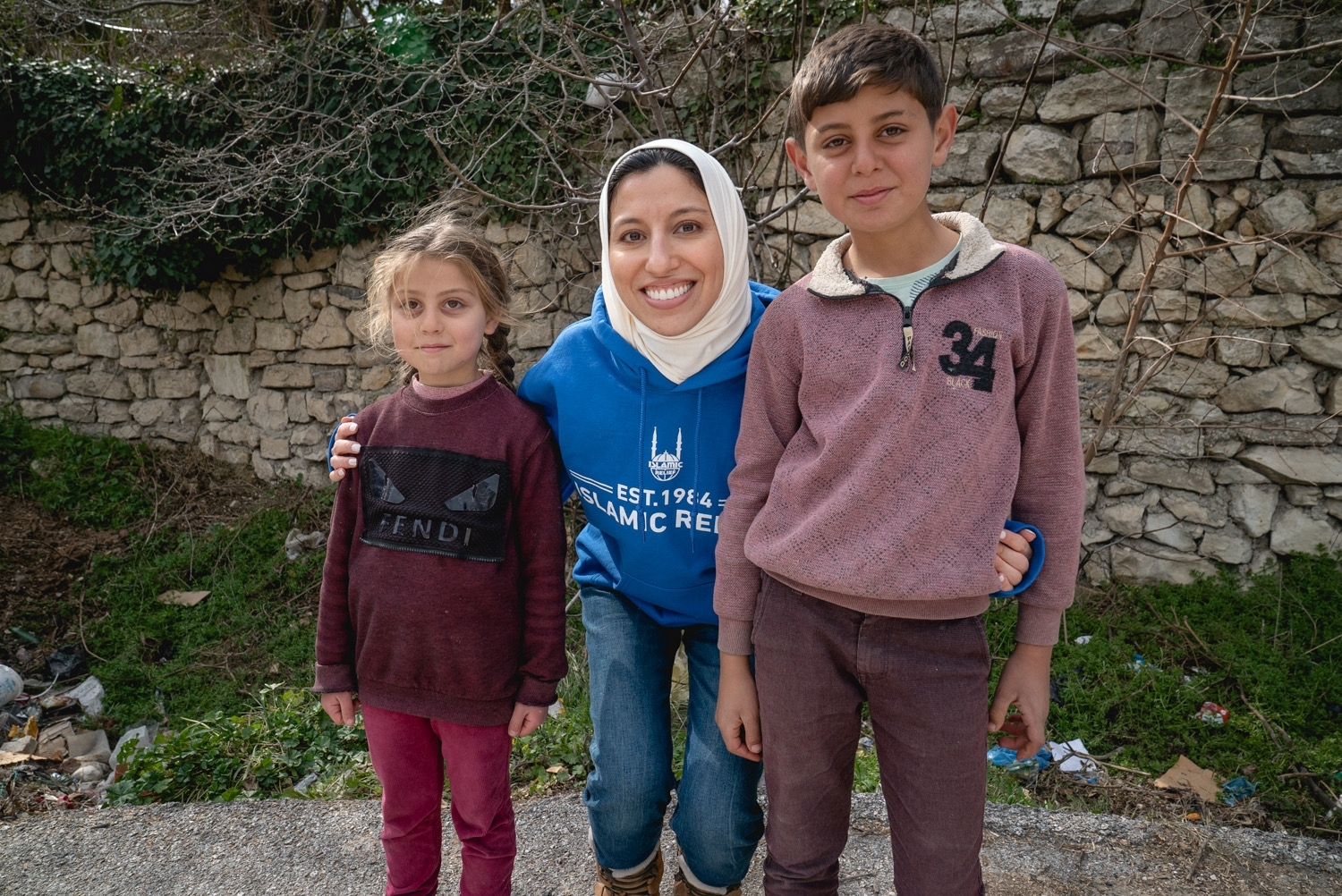
Melanie visiting with children in Turkey in the aftermath of the earthquakes; image source: Imam Khalid Latif.
“Long after the cameras have left and the international media moves on to the next story, the overwhelming need to help the people of Turkiye and Syria will still exist,” says HH’s CEO Melanie Elturk, who traveled with an IRUSA team to Turkey in the immediate aftermath to raise awareness and donations.
“And sadly, the donations to help rebuild will slow down significantly. It's important to remember this earthquake hit an already devastated and war-torn area of the world so the need is even more critical than we can imagine. I'll never forget meeting kids who thought the earthquake was just a routine air strike they've become accustomed to. It's hard to imagine what they've endured but one thing is for sure – they need our help."
As we settle into the second 10 days of Ramadan, we urge you to remember the people of Turkey and Syria in your du’as, and we ask for your donations to help with these longer-term relief efforts. Near the end of the month, we’ll look at some of the behind-the-scenes immense intricacies and responsibilities of how IRUSA does this work, the success of which depends in large part on continued donations from our communities.
Let’s not forget the losses endured by the earthquake survivors in Turkey and Syria this Ramadan. They need our support now more than ever.
Subscribe to be the first to know about new product releases, styling ideas and more.
What products are you interested in?

